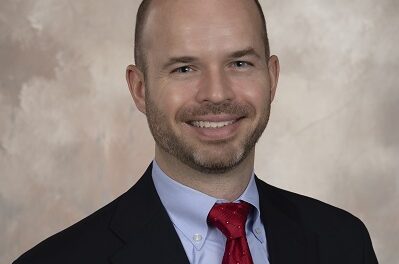When President Bush tapped David J. Brailer, M.D., Ph.D. to be the first National Coordinator for Health Information Technology, Brailer initially hesitated. But according to Brailer, both the Presidents persistence and the realization that he could make a lasting impact on health care convinced him this was the right thing to do.
A brief look at Brailer’s experience gives understanding as to why President Bush was persistent: He was previously a Senior Fellow at the Health Technology Center in San Francisco; and served for 10 years as Chairman and CEO of CareScience, Inc., a leading provider of care management services and Internet-based solutions that help reduce medical errors and improve physician and hospital-based performance. Brailer also holds doctoral degrees in both medicine and economics. President Bush created the National Coordinator position as part of the Department of Health and Human Services, in April 2004, for the purpose of establishing an Electronic Health Records (EHR) system for patients throughout the country, adding that he wanted it in place within 10 years. Brailer said he was reluctant to accept the President’s offer because he had just sold a business and was planning to take a year off. “I tried to talk him out of it, but I knew he was serious and I knew the time was right.” Indeed, both President Bush and Brailer realize the significance of interoperable EHR in particular, and Health Information Technology (HIT) in general, and the importance of having a reliable system in place. As Brailer explained: “There is overwhelming evidence that when a physician uses appropriate information (to treat a patient), the chance of death can be significantly reduced.” He gave one example of how this is accomplished. “Different drugs react with each other, and if a physician only knows part of the drugs a patient is taking, that doesn’t help. By having all of the information, (physicians) can just make better overall treatment choices.” Darlene Kauffman is an Associate Director in Payer Relations for the Pennsylvania Medical Society, which represents 20,000 physicians, residents, medical students, and practice managers in Pennsylvania. She agrees with Brailer about the importance of EHR, and said that even though it had been in the works, the Presidents backing, and the creation of the National Coordinator position, gave more of a sense of urgency: “Those of us in the industry who had not moved forward on electronic records took a second look at it,” she said. Kauffman concurred with Brailer that patient safety leads the list as to why the records are so important. “Having access to records is clearly of value,” she said. “If theres more than one hospital in a hospital system, you may not have immediate access to records. There is also the cost benefitit eliminates the duplication of tests.” She gave the illustration of a Pennsylvania resident who has diagnostic testing, then goes to Florida for the winter. If he has a problem, he may go to the hospital where they will ask if he ever had a particular test at home. The patient might say no, not realizing that he did. Access to records can prevent such duplication. She also mentioned “the whole quality issue. When you have records, you can compare between providers and determine who has the better care. Now we just have claims, and a claim is probably insufficient to determine the quality of care. More details would be included on the actual chart.” The EHR can even play a significant role in something as seemingly simple as reducing errors when a pharmacist can’t read a physician’s handwriting. Despite the tremendous benefits from EHR, Kauffman added, “Everybody agrees its the right thing to do, but that doesnt mean theyre ready to do it.” Less than one-thirdan estimated 31 percentof hospital emergency rooms use EHR, and 17 percent of doctors, according to the Centers for Disease Control. Why arent more providers buying into the system? The reasons are myriad, according to Kauffman. “Some believe it will be cost-prohibitive,” she said, mentioning the increase in medical liability premiums and low reimbursement, including the projected 4.3 percent increase in 2006 Medicare fees, as factors contributing to their concern. “And many people view it as a hassle. They say, ‘I’ve seen 10,000 patients for 20 years. How am I going to convert all of those paper records?’ Another reason is that they are concerned that they will buy a system that may not be compliant with standards that are not yet finalized. And of course, as with any new technology, some people are just resistant to change. I just know a lot of selling will have to occur.” However, because the number of people concerned about this subject is overwhelming, no doubt the system will eventually be in place. “This has turned out to be more intense than I thought,” Brailer said. “There has been a non-stop outpouring of support. I received more than 7,000 emails the first day (the position) was announced, and it’s never slowed down.” He acknowledged that working for the government is a plus because “we can serve as a catalyst for change. And the government can lead by example and help establish better market conditions so that barriers health care providers face in adopting health IT tools are reduced.”Related Posts
Recent Posts
-

-
 CENTENE CORPORATION REPORTS FIRST QUARTER 2024 RESULTSApr 26, 2024 | SF STAT!
CENTENE CORPORATION REPORTS FIRST QUARTER 2024 RESULTSApr 26, 2024 | SF STAT! -

-

-
























